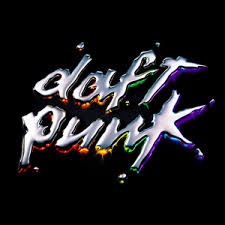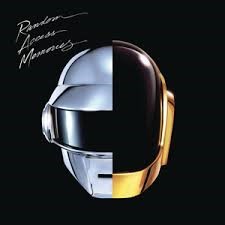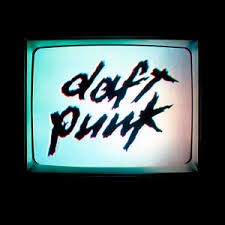Introduction
Daft Punk reshaped the sound of modern music with just a handful of releases. Though the duo released only four studio albums, their influence spans decades, genres, and continents. From the gritty club energy of their debut to the retro-futuristic polish of their final album, the Daft Punk complete discography captures a journey of constant reinvention. This blog explores each key release, highlighting how these records built their legacy.
Fans often search for answers about Daft Punk’s breakup, their genre, and their most famous songs. But every answer traces back to their albums. With their 2021 split, the Daft Punk complete discography now stands as a closed but defining chapter in electronic music history. Let’s explore each album that built their legacy, influenced a generation, and helped redefine what electronic music could be.
1. Discovery (2001)

Discovery, released in 2001, redefined Daft Punk’s sound and reshaped expectations for electronic albums. This second entry in the Daft Punk complete discography introduced a brighter, more melodic direction. The duo moved away from the raw house energy of Homework and embraced disco, funk, synthpop, and rock influences.
With tracks like “One More Time,” “Harder, Better, Faster, Stronger,” and “Digital Love,” the album achieved massive commercial success. These singles topped charts, dominated clubs, and entered the mainstream. Critics initially debated the drastic stylistic change, but over time, Discovery became one of the most praised electronic albums of all time.
Sampling plays a major role here, but Daft Punk flipped familiar sounds into something futuristic. Every transition, drop, and filter sweep was deliberate. As a concept album, Discovery also connected with the anime film Interstella 5555, which visualized the entire tracklist as a feature-length animation.
The production showcased a warmer, more emotional tone. While keeping dance energy intact, the album offered more narrative and nostalgia. It also expanded their fanbase beyond electronic circles. Rock fans, pop fans, and even casual listeners found something to enjoy.
Sales figures supported the critical acclaim. Discovery sold millions of copies and became one of the most influential records of the early 2000s. Its legacy appears in countless modern tracks that borrow its structure or sonic palette.
Fans often call it Daft Punk’s best album, and critics routinely include it in “greatest albums” lists. As part of the Daft Punk complete discography, Discovery stands as a creative peak that captured a bold new era in music
2. Random Access Memories (2013)

Random Access Memories, released in 2013, became the most successful and ambitious album in the Daft Punk complete discography. It marked a major shift in sound, trading digital production for live instruments and analog warmth. The duo drew inspiration from late ’70s and early ’80s disco, soft rock, and funk.
Key singles like “Get Lucky” and “Instant Crush” helped the album top charts worldwide. These tracks combined catchy hooks with contributions from major collaborators, including Pharrell Williams, Nile Rodgers, and Julian Casablancas. Unlike previous records, Random Access Memories embraced long track lengths and rich, layered compositions.
Critics widely praised the album for its scope, musicianship, and nostalgic yet futuristic vision. It won several Grammy Awards, including Album of the Year. With millions of copies sold, it became the duo’s biggest commercial success. Every element — from the artwork to the orchestration — felt crafted to honor the golden era of analog music.
Thematically, the album explored memory, technology, and humanity. Songs like “Touch” and “Giorgio by Moroder” paid tribute to musical pioneers while pushing creative boundaries. As the final entry in the Daft Punk complete discography, Random Access Memories closed their career on a high note.
Fans appreciated the emotional depth and slower pace compared to earlier releases. Although some missed the harder club beats, the bold artistic direction won over a broad audience. The album served as a love letter to music itself — not just electronic music.
Following their 2021 split, this record remains Daft Punk’s last studio statement. It confirmed their ability to evolve while still staying true to their core identity. Few albums finish a career with such impact and acclaim.
3. Homework (1997)

Daft Punk’s debut album, Homework, arrived in 1997 and introduced the world to their unique approach to house music. The release helped define the French house movement while setting a strong foundation for the Daft Punk complete discography. The sound blends raw drum machines, distorted synths, and creative sampling techniques that felt both experimental and grounded in dancefloor culture.
Tracks like “Da Funk” and “Around the World” quickly became club staples. These songs delivered infectious grooves and memorable hooks that captured attention globally. As a result, the album earned widespread acclaim for its energy, originality, and minimalism. Critics praised the duo’s production style, noting how they combined simplicity with strong rhythmic ideas.
Though the album leans heavily into underground aesthetics, it still achieved commercial success. Eventually, Homework sold over two million copies worldwide. It also established the robotic personas that would become central to Daft Punk’s visual identity.
Homework relies heavily on samples, and Daft Punk used them in creative ways that avoided cliché. Even today, fans and artists revisit the album as a touchstone for electronic music authenticity. While later records showed more polish, this one captured raw potential and inventive spirit.
For many, Homework marked a turning point in electronic music. Its bold direction earned Daft Punk a lasting place in music history. As the first entry in the Daft Punk complete discography, it remains vital listening
4. Human After All (2005)

Human After All arrived in 2005 and marked a stark contrast to the lush, melodic sound of Discovery. This third studio release in the Daft Punk complete discography leaned into a raw, mechanical aesthetic. The production emphasized repetition, distortion, and stripped-down arrangements that divided critics and fans alike.
Songs like “Robot Rock” and “Technologic” pushed simplicity to the forefront. Daft Punk used limited loops and textures to create a colder, more industrial feel. At the time, many reviewers criticized the album’s minimalism and perceived lack of depth. However, its themes of technology, identity, and control resonated more in later years.
Although initially polarizing, the album gained new life through Daft Punk’s 2007 Alive tour. Live reworks blended Human After All tracks with songs from earlier albums, transforming public opinion. Audiences began to see how the album fit into the broader artistic arc of the Daft Punk complete discography.
Commercially, Human After All didn’t match the huge numbers of its predecessor. Still, it performed respectably, especially in Europe and Japan. The robotic imagery became more pronounced during this era, further cementing their iconic personas. While not as widely embraced as other records, it carved out a distinct identity.
Over time, Human After All earned respect for its conceptual boldness. Its sonic themes of automation and alienation felt more relevant with the rise of digital culture. It may not top fan polls, but it plays a key role in the duo’s evolution. The album remains essential in understanding the full scope of their artistic intent.
Frequently Asked Questions and Legacy
How many albums did Daft Punk release?
Daft Punk released four studio albums: Homework (1997), Discovery (2001), Human After All (2005), and Random Access Memories (2013). Their discography also includes two live albums (Alive 1997 and Alive 2007), and one soundtrack for Tron: Legacy (2010). Together, these releases form the Daft Punk complete discography.
What is Daft Punk’s best album?
Many fans and critics rank Discovery as Daft Punk’s best album due to its innovative blend of electronic, funk, and pop. However, Random Access Memories also receives high praise for its musicianship and emotional depth. Both albums consistently appear in best-of lists and define different peaks of the Daft Punk complete discography.
Why did Daft Punk break up?
Daft Punk announced their split in 2021 through a farewell video titled Epilogue. They offered no detailed explanation. Their departure marked the end of an era, making their existing discography — especially the four studio albums — a complete creative statement.
What genre is Daft Punk?
Their core sound started as French house. Over time, they blended in disco, funk, electro-rock, and soft rock. Each album showcased evolution. Homework leaned into raw house, while Discovery fused pop and funk. Human After All used stripped-down electro. Random Access Memories embraced analog instrumentation and disco revival.
Are Daft Punk still making music?
No, they are no longer active. Since 2021, they have not released new music. The Daft Punk complete discography remains their definitive legacy.
Who were the members of Daft Punk?
Thomas Bangalter and Guy-Manuel de Homem-Christo formed Daft Punk in 1993. Their robot personas became central to their identity and stage presence. This concept shaped how fans connected with their music and visuals.
What was Daft Punk’s first album?
Their first album was Homework, released in 1997. It brought French house to global audiences and laid the foundation for their rise.
What was Daft Punk’s last album?
Random Access Memories, released in 2013, was their final studio album. It also became their most successful and won multiple Grammy Awards.
What are Daft Punk’s most famous songs?
Daft Punk’s most iconic songs include “Around the World,” “Da Funk,” “One More Time,” “Harder, Better, Faster, Stronger,” “Digital Love,” “Robot Rock,” “Technologic,” “Get Lucky,” and “Instant Crush.” These tracks come from across the Daft Punk complete discography and reflect their changing styles.
Did Daft Punk use samples?
Yes, they used sampling extensively, especially on Homework and Discovery. However, they transformed the samples into new creative expressions. Their sampling techniques became influential in modern electronic and pop production.
Legacy
Even after their breakup, Daft Punk’s influence continues to grow. Their albums reshaped electronic music, inspired new artists, and brought underground sounds into the mainstream. The Daft Punk complete discography now stands as a blueprint for creative risk-taking in music. From house purists to pop fans, their work resonates with millions.
The Daft Punk complete discography tells a story of evolution, innovation, and reinvention. From the raw energy of Homework to the emotional depth of Random Access Memories, each album pushed electronic music in new directions. Though Daft Punk officially ended their journey in 2021, their music continues to shape the sound of modern pop, house, and dance genres.
Their four studio albums, two live recordings, and one cinematic soundtrack remain essential listening. Whether you’re discovering them for the first time or revisiting their catalogue, the Daft Punk complete discography offers a timeless experience filled with creativity and precision. For fans of any genre, Daft Punk’s legacy remains unforgettable.

